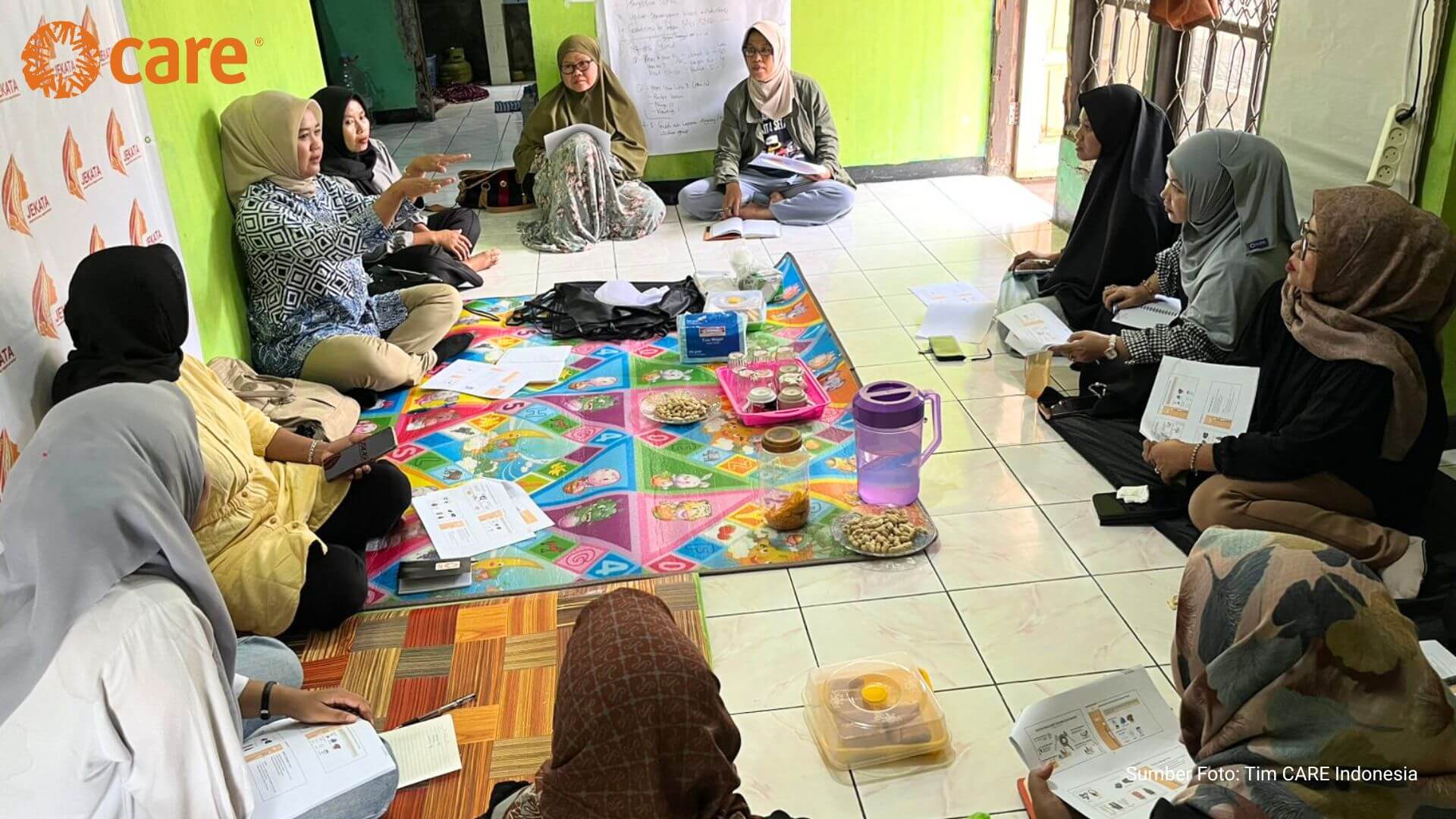Data from the Sistem Informasi Online Perlindungan Perempuan dan Anak (Simfoni PPA) recorded 2,808 cases of violence in West Java in 2025, with 2,340 women as victims. The Ministry of Women’s Empowerment and Child Protection (MoWECP) also notes that many survivors still refrain from reporting their cases because they feel they do not have access to a safe and trusted space.
This unsafe and unequal situation faced by women survivors has encouraged women in Purwakarta and Sukabumi to take collective action through a community-based group called the Empowerment Network for Resilient Women (JEKATA) a key component of CARE Indonesia’s collaboration with local partners to strengthen gender equality at the community level. The presence of JEKATA in both districts has become a source of hope, bringing women closer to their rights and to supportive networks.
Mariana, a member of JEKATA Sukabumi, shared that the group was formed because of the lack of safe spaces for women. As a result, survivors often felt afraid to report incidents of violence against women and children. According to her, JEKATA serves as a collective platform where women can support one another and advocate for their rights.
“In JEKATA, we can gather, learn, and strengthen our skills, from entrepreneurship to case-handling training. This is why JEKATA has become a space for us to fight for women’s rights,” she said.
Mariana recounted a case of domestic violence that JEKATA helped handle. The case emerged after the group received a report from the clinic where the survivor worked. Responding immediately, JEKATA collaborated with the Bipartite Cooperation Institution (LKS Bipartit) and the workplace’s gender-based violence response task force to provide psychological and legal support.
Together, Mariana and JEKATA members accompanied the survivor to report the case to village authorities and the local police. The survivor also received medical examination services at Pelabuhan Ratu Regional Hospital. The case was eventually mediated by the police and reached a resolution.
However, Mariana noted that their efforts are not without challenges limited operational funds, slow responses from institutions, and long distances to reach survivors are among the most common obstacles.
“We understand that this work is not easy and comes with many challenges. Even so, we continue to raise awareness and advocate for safe spaces for women. We do this through community gatherings and by distributing informational brochures,” she explained.
A similar spirit thrives in Purwakarta. Misrawati, a JEKATA Purwakarta member, emphasized the importance of involving the wider community in efforts to create safe and inclusive environments.
“We frequently conduct awareness sessions on gender equality and preventing violence against women and children,” she said.
However, challenges persist. According to Misrawati, some survivors still feel afraid to share their stories, and at the village level, there are no designated protection facilities for survivors or case companions. Coordination with relevant institutions also remains inconsistent.
“Sometimes survivors are too afraid to open up. We also do not have local protection shelters for survivors, and institutional follow-up on cases is still lacking,” she added.
Despite these barriers, the determination of Mariana, Misrawati, and the women of JEKATA continues to shine.
“My friends and I always feel a calling to support other women, especially survivors of violence,” said Mariana.
“JEKATA will continue to work toward justice and equality for women in all aspects: politics, economics, law, health, education, religion, socio-cultural life, and the environment,” concluded Misrawati.
Writer: Kukuh Akhfad
Editor: Swiny Adestika


